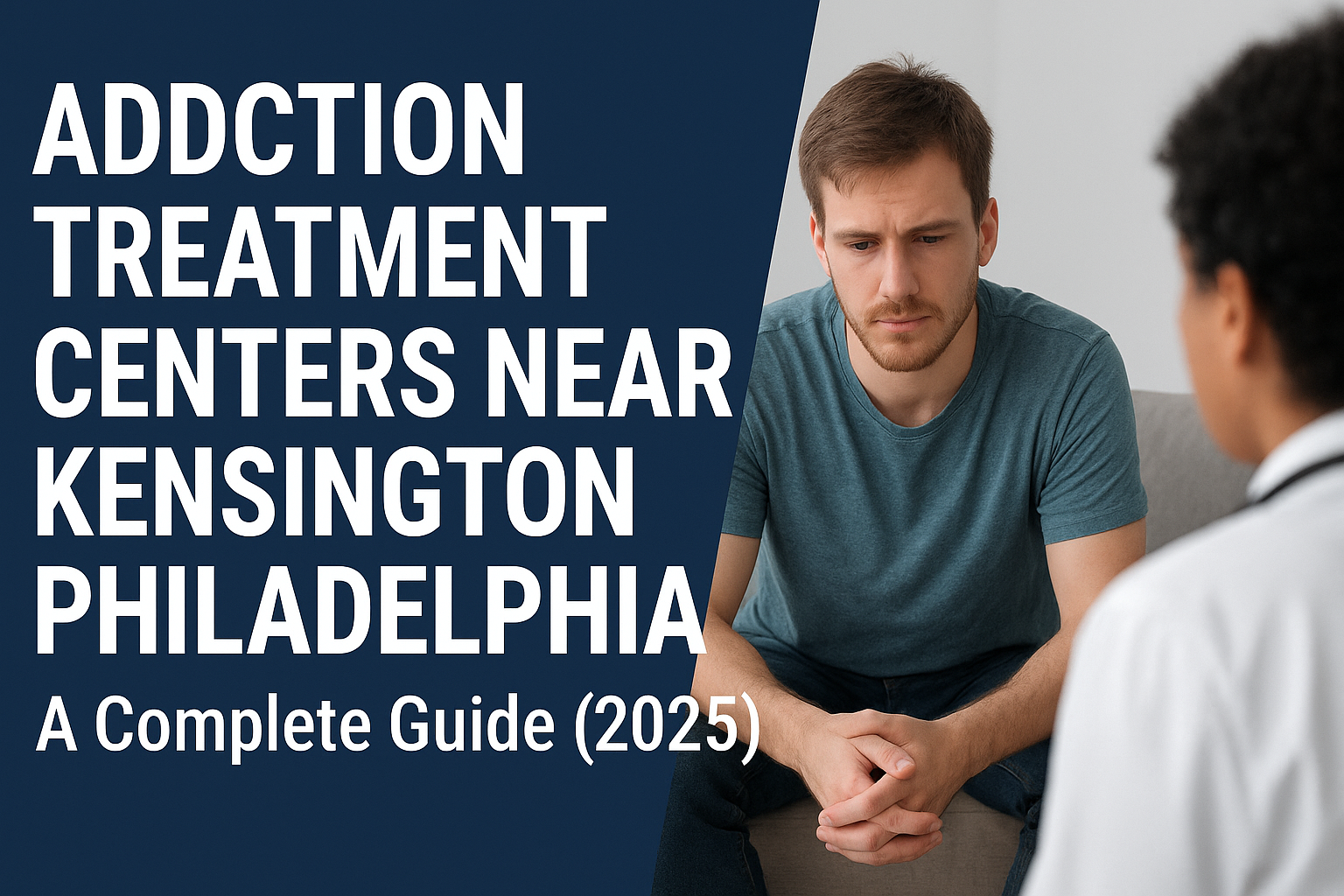Understanding the Addiction Crisis in Kensington
Kensington has been described as one of the hardest-hit neighborhoods in the nation by the opioid epidemic. The area’s visible open-air drug market, high prevalence of fentanyl, and the emergence of xylazine (a dangerous veterinary tranquilizer commonly mixed into street opioids) have increased overdose risk and complicated treatment needs.
Community organizations, public health departments, and treatment centers near Kensington Philadelphia are working to expand outreach, harm reduction, and clinical care to meet this urgent need. If you or a loved one are searching for addiction treatment centers near Kensington Philadelphia, this guide explains the options available and how to choose care.
Why Seek Professional Addiction Treatment?
Quitting alone can be dangerous and difficult. Professional treatment centers provide medical supervision, evidence-based therapies, and ongoing support that improve the chances of sustained recovery. Key services include:
- Medical detox — supervised withdrawal that manages dangerous symptoms.
- Therapy & counseling — CBT, motivational interviewing, and group work.
- Medication-assisted treatment (MAT) — methadone, buprenorphine (Suboxone), or naltrexone to reduce cravings.
- Aftercare & relapse prevention — outpatient follow-up, support groups, and housing assistance.
Types of Addiction Treatment Centers Near Kensington Philadelphia
Understanding facility types helps you match needs to services.
Detox Centers
Detox centers support the first, medically risky stage of withdrawal. For opioids or alcohol, clinical oversight significantly reduces complications.
Inpatient / Residential Programs
These provide 24/7 structured care for those with severe addiction or co-occurring mental health conditions. Typical stays range from several weeks to months.
Outpatient Programs
Outpatient care allows patients to continue living at home while attending therapy sessions and medical appointments — a flexible option for those with responsibilities at home or work.
Medication-Assisted Treatment (MAT) Clinics
MAT clinics provide FDA-approved medications and counseling. These clinics are central to treating opioid use disorder and are commonly found in and around Philadelphia.
Dual Diagnosis Centers
When addiction coexists with mental health disorders, dual diagnosis programs treat both simultaneously for improved outcomes.
Notable Addiction Treatment Resources Near Kensington
Below are respected local resources and facilities serving Kensington residents. Availability may change — call ahead for admissions, waitlists, or intake requirements.
- Prevention Point Philadelphia — a harm reduction organization in Kensington offering syringe services, referrals, and pathways into treatment.
- Kensington Hospital – Addiction Services — long-standing outpatient methadone maintenance and counseling programs.
- Fairmount Behavioral Health System — inpatient detox and residential options within easy reach of Kensington.
- SOAR Clinics (Supporting Opioid Addiction Recovery) — multiple locations offering methadone and buprenorphine plus counseling.
- Gaudenzia Treatment Centers — city-wide provider offering detox, residential, and outpatient services for adults and adolescents.
How to Choose the Right Treatment Center
Use this checklist when evaluating programs:
- Certifications & licensing: Is the facility state-licensed and accredited by CARF or The Joint Commission?
- Treatment approach: Does the facility use evidence-based therapies and offer MAT if needed?
- Specialty care: Can they treat co-occurring mental health issues or complex medical needs?
- Location & setting: Would proximity to Kensington help or hinder recovery for the individual?
- Payment options: Does the facility accept Medicaid, Medicare, private insurance, or offer sliding-scale fees?
- Aftercare planning: Do they provide relapse prevention, outpatient follow-up, and community support?
Common Barriers to Treatment in Kensington
Several obstacles can slow access to care in Kensington:
- Stigma: Shame and community attitudes discourage help-seeking.
- Waitlists: High demand can mean delays for intake and admission.
- Homelessness and housing instability: Makes outpatient care and medication adherence more difficult.
- Relapse triggers: Returning to a neighborhood with active drug markets can increase relapse risk.
Community Efforts & Signs of Progress
City investments, nonprofit activity, neighborhood cleanups, and community organizing are helping to expand services and decrease harms. Programs focused on harm reduction, housing-first strategies, and workforce reentry are showing results and creating new referral pathways into treatment.
How to Find Help Today
If immediate support is needed, contact a local center listed above, connect with Prevention Point, or call the SAMHSA National Helpline at 1-800-662-HELP (4357) for treatment referrals. Local hospitals and urgent care centers also provide intake information in crisis situations.
Conclusion
The scale of the opioid and xylazine crisis in Kensington, Philadelphia is daunting, but recovery resources exist. By connecting with addiction treatment centers near Kensington Philadelphia, people can take the first steps toward medical stabilization and long-term recovery. Community organizations, public health partners, and local providers continue working to expand access — and recovery is happening every day.
